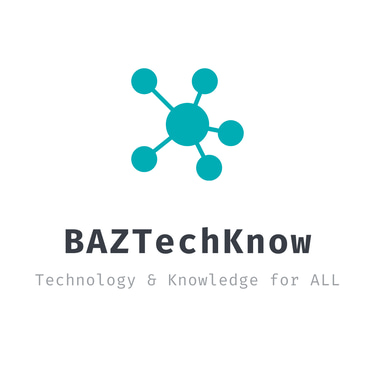50% Doscount for BAZTechKnow Alumni on Upcoming Ansible & Jenkins Course | BAZTechKnow - Your career GROWTH partner!
DevOps Certification Guide: 4 Top-Rated Options for Jobs
This blog highlights the top 4 certifications that can significantly enhance your job prospects and expertise. Discover which certifications are most sought-after by employers and how they can help you stand out in the competitive DevOps market.
10/3/20244 min read


DevOps certifications are crucial for professionals looking to validate their skills and knowledge in implementing and managing DevOps practices. They serve as a designation that demonstrates specific competencies needed for success in a DevOps role. Candidates can typically earn these certifications through a combination of assessments, educational courses, and performance reviews.
Overview of Key Certifications
The CKA certification focuses on the skills required to manage Kubernetes environments effectively. With the increasing adoption of cloud-native technologies, professionals with this certification are in high demand, as they demonstrate proficiency in orchestrating containerized applications.
Certified Kubernetes Administrator (CKA)
This certification validates expertise in using Jenkins for continuous integration and continuous delivery (CI/CD) processes. Jenkins is widely recognized as a leading automation server in the DevOps ecosystem, making this certification highly valuable for practitioners.
Certified Jenkins Engineer (CJE)
Professional This certification is designed for individuals who wish to demonstrate their skills in managing and implementing DevOps practices on the AWS platform. Candidates must possess at least two years of experience in provisioning, operating, and managing AWS environments. The certification encompasses topics such as continuous delivery, automation, monitoring, and security, validated through a two-part exam consisting of multiple-choice questions and practical scenarios.
AWS Certified DevOps Engineer
As containerization continues to reshape software development and deployment, the DCA certification provides recognition for those skilled in using Docker technology to create and manage containers, facilitating efficient DevOps workflows.
Docker Certified Associate (DCA)
Obtaining a DevOps certification is essential for professionals looking to enhance their career prospects. These certifications not only validate expertise but also help individuals remain competitive in a rapidly evolving job market. Companies increasingly recognize the value of certifications, which can lead to higher salaries and improved job opportunities—averaging around $130,000 annually for certified professionals.
Choosing the Right Certification When selecting a DevOps certification, professionals should consider several factors to research the job market to identify which certifications are in high demand. Level of Certification: Match the certification level with personal experience and skills; beginner certifications are suitable for novices, while advanced certifications cater to seasoned professionals. Vendor-Specific vs. Vendor-Neutral: Choose certifications based on the tools and services your organization uses. Time and Cost: Assess the time required for preparation and the costs of obtaining the certification, including exam fees and training materials.
Importance of DevOps Certifications:
DevOps Engineer A DevOps Engineer plays a pivotal role in integrating project functions across the software development lifecycle, including planning, building, testing, deployment, and support. This role requires proficiency in implementing and managing continuous integration/continuous deployment (CI/CD) pipelines, automating infrastructure, and ensuring system reliability.
Microsoft Certified DevOps Engineer - Expert: This certification focuses on the Azure DevOps Engineer role and encompasses skills like implementing continuous delivery and managing dependency management. AWS Certified DevOps Engineer: Designed for professionals with over two years of experience, this certification evaluates abilities to work with AWS technologies, including EC2 and CloudFormation, to manage distributed applications.
Certification Details by Job Title
Site Reliability Engineer (SRE) Site Reliability Engineers apply a software engineering mindset to system administration, focusing on maintaining scalable and reliable infrastructure. Skills in automation and system performance optimization are crucial.
Google Cloud Professional Cloud Architect: This certification ensures that SREs can design and manage robust cloud solutions while adhering to best practices in site reliability.
DevOps Architect DevOps Architects are responsible for developing platforms and architectures that facilitate the automated administration of applications and infrastructure. This role often necessitates a strong background in software development and system architecture.
Google Cloud Professional DevOps Engineer: This certification validates proficiency in designing and managing processes that support development pipelines on Google Cloud.
DevOps Manager A DevOps Manager oversees teams that automate manual tasks related to code development and deployment, ensuring high availability of the work environment. Important skills for this role include leadership and project management, alongside technical expertise.
Certified Agile DevOps Professional: This certification emphasizes agile methodologies in the context of DevOps practices, equipping managers to drive cultural change within teams.
Security Engineer Security Engineers are essential in protecting systems against cyber threats, a key component of the DevOps philosophy of continuous delivery and integration. Expanding expertise in cybersecurity is vital for this role.
Certified Information Systems Security Professional (CISSP): This globally recognized certification validates the knowledge and experience required to effectively manage security protocols within a DevOps framework.
Prerequisites and Preparation for Certifications
General Prerequisites:
Most certifications in the DevOps field have specific prerequisites that candidates must meet before attempting the exam. Generally, applicants are required to have relevant work experience, often a minimum of two years, though some certifications may necessitate more specialized backgrounds, such as three years in systems engineering or related fields for certain credentials like the CSE certification. Additionally, prospective candidates might be required to complete approved training courses or possess a degree in a related discipline.
Exam Preparation:
Preparing for a certification exam typically involves several steps, starting with registration through an accredited training provider. Once registered, candidates gain access to online course materials that cover essential topics necessary for the exam. These topics often include Agile methodologies, Continuous Delivery, Infrastructure as Code, and Automation & Orchestration, among others. The cost of certification varies widely, generally ranging from $500 to $1000 USD, depending on the chosen training provider. It's crucial for candidates to consider the time commitment required for preparation; some programs may take several weeks to months to complete, while others may allow for self-study options.
Hands-On Experience:
Practical experience is vital for success in obtaining certifications. Candidates are encouraged to apply the concepts learned during their preparation to real-world projects to solidify their understanding. Additionally, joining DevOps communities can provide networking opportunities and further resources for preparation.
Specific Certifications Some certifications may have additional requirements. For example, the AWS DevOps Professional certification necessitates proficiency in at least one programming language and experience in building highly automated infrastructures. Similarly, the RHCA certification requires candidates to pass five exams, with a combination of core and elective subjects focusing on technologies such as Ansible and Kubernetes.
DevOps certifications are not just about validating your skills; they're also about opening doors to new career opportunities and professional growth. As the demand for DevOps professionals continues to rise, certifications can provide a competitive edge in the job market. BAZTechKnow can help you achieve your career goals by providing mentorship, courses, and hands-on boot camps. By investing in these certifications, you're gaining technical expertise and demonstrating your commitment to staying ahead of the curve in the ever-evolving world of technology.

bazknowledge@gmail.com
Social media
Subscribe to our newsletter
0092-300-8-56-3209
Copyright (c),2025, BAZTechKnow All rights reserved.
BAZTechKnow
Your career GROWTH partner!
OneStop solution for all of your technical needs, from solution designing & implementation to Training / Consultation for ICT, Cloud, Kubernetes & DevOps
